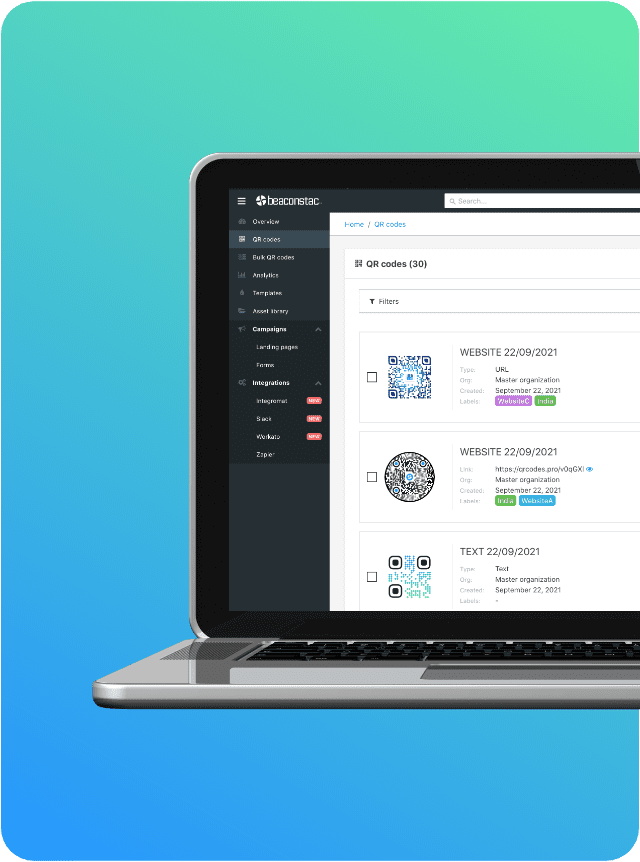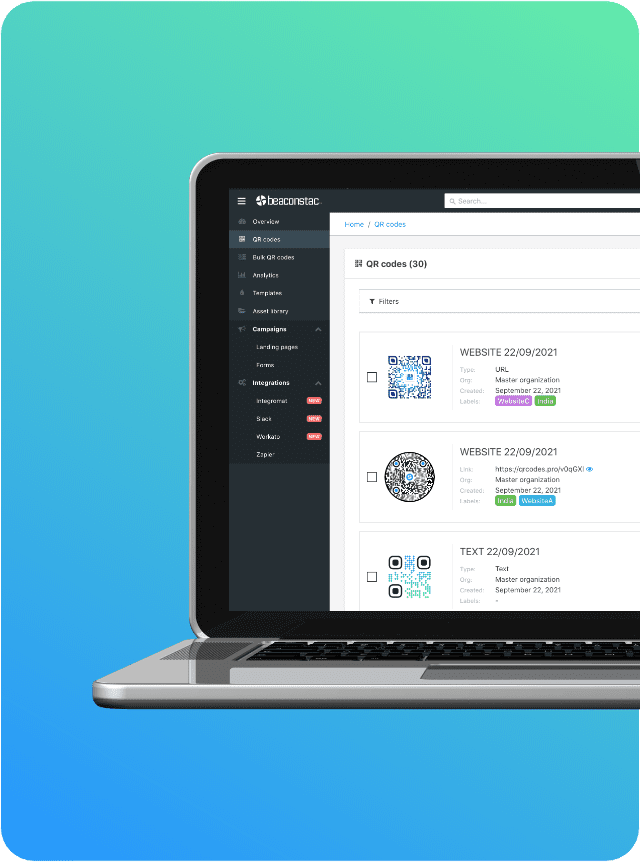
Beaconstac lands $25M investment for its QR code management platform
QR code tech, which exploded during the pandemic as businesses searched for hygienic alternatives to physical touchpoints, continues to grow in popularity particularly across sectors such as restaurants and outlet retail. According to Insider Intelligence, more than 99.5 million smartphone users will scan a QR code by 2025, up from 83.4 million in 2022. There’s a potential downside — some argue QR codes reduce the need to hire employees who collect payments and service customers — but it seems clear that the tech, for better or worse, isn’t’ going anywhere.
That’s benefitted startups like Beaconstac, which works with companies including United Airlines, Amazon and Deloitte to create end-customer QR code experiences. In a sign of just how rosy business has been, Beaconstac today announced that it closed a $25 million Series A funding round led by Telescope Partners with participation from Accel.
Co-founder and CEO Sharat Potharaju says that the new capital will be put toward expanding the startup’s team and product R&D.

Image Credits: Beaconstac
“We’ve seen tremendous growth since the beginning of the pandemic because our QR code technology offers businesses an efficient, user-friendly solution for creating contactless experiences,” Potharaju told TechCrunch in an email interview. “We see more businesses continuing to adopt this technology because it streamlines the customer experience. The pandemic has only amplified the existing need to connect the physical and digital worlds better.”
Potharaju co-founded Beaconstac in 2019 alongside Ravi Maddimsetty. Potharaju is an investment banker by trade, having held posts at Merrill Lynch and Fieldstone Private Capital Group. Maddimsetty, a software engineer, was an IT associate at Morgan Stanley and contributed to open source Linux projects including the GNOME desktop environment.
With Beaconstac, Potharaju and Maddimsetty sought to ride the QR code adoption wave, building a platform that allows businesses to create, manage and track QR codes across different physical touchpoints. Using Beaconstac, companies can modify aspects of branded QR codes including the shape, captions and background colors to match their design languages.
Beaconstac also lets companies create QR codes that track engagement, like a customer’s location at the time of a scan. While not a feature every patron is likely to be comfortable with, Potharaju argues that it’s helping companies acquire first-party data at a time when more platforms (see Apple) are becoming averse to tracking. (Whether you agree with Potharaju depends which side of the privacy debate you fall on, of course.)
“Beaconstac’s platform does not collect any personally identifiable information when a QR code is scanned — we are compliant with GDPR regulations around security and privacy,” Potharaju said. “Consumers can always request data deletion under GDPR rules.”
While Beaconstac competes with vendors including Flowcode and Bit.ly, the company claims to have over 20,000 customers — double the figure from last year. Potharaju declined to share revenue figures, but said that Beaconstac — which has offces in the U.S. and India — plans to double its 75-person workforce sometime this year.
“In 2019, my co-founder and I were asking the question, ‘Our phones are great at getting us online, but why aren’t they better at connecting us with the physical world?,’” Potharaju said. “Beaconstac [is] helping companies … build digital cohorts based on interactions in the physical world.”

